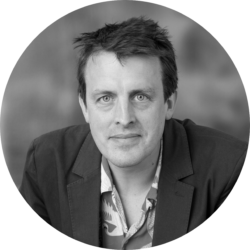Why Saudi money is so hard to refuse
GRAVITY
I’d like to think, because of the work I do, that I’d be immune to the gravitational pull of money, but I’d probably be lying. On the rare occasions when I’ve met someone wealthy — and they’ve been multimillionaires, rather than centibillionaires, and thus nowhere close to the lower reaches of the Forbes list — I can’t help noticing that slight tug as my brain says: “Just think of what could be achievable if I could persuade this person to invest in one of my pet projects.”
Which is all to say that, although I’d hope I could resist the lure of the vast mass of Saudi money if I was confronted by it, in reality, I’m not sure I wouldn’t throw myself in and start doing lengths like Scrooge McDuck. That’s certainly what everyone else seems to be doing. So, it’s time to check in once more on Neom, the blandly-named but horrific new city that Saudi Crown Prince Mohammed bin Salman has decided to build in the desert because he can:
- “Con Air” director Simon West is set to film a historic drama, “Antara,” in Neom.
- Sindalah has partnered with prestigious JLS Yachts as Neom’s first superyacht destination gears up for opening. “With 86 berths for yachts up to 50 meters and additional serviced offshore buoys for superyachts up to 180 meters, the Sindalah marina will become a new hub for the global yachting calendar,” the press release reads.
- A tunnel contract is up for grabs at Neom’s port city, Oxagon: “The tunnel will link the offshore elements of Neom’s floating port city Oxagon in the Red Sea with the Neom Connector – a high speed railway that will connect Oxagon with its linear city, the Line.”
- Neom is touted as a potential host for the 2034 World Cup.
- The NEOM McLaren Formula E Team has unveiled a motorsport livery designed using generative artificial intelligence.
- South Korean robot maker takes part in supermassive Saudi development Neom.
- Neom, the $500bn megacity, which organizers claim will be 33 times the size of New York City, is due to include a 105-mile straight-line city.
I could go on, but you get the point. A lot is happening, and it is all bewildering. There is a film production hub, a new harbor for superyachts, a high-speed railway, a new port city, a sports venue and a new city that will run for 100 miles in a straight line. A couple of months ago, I was in the Marshall Islands, which is a series of atolls in the Pacific Ocean, where the capital city — Majuro — is long and thin, making it extremely time-consuming to get anywhere and thus incredibly impractical. The Marshallese had no choice about its shape, however, because the island is the rim of a submerged volcano, rarely more than 656 feet wide at any point, and Majuro could only be built where the land was. The Saudis, however, are choosing to build a city in a way that is guaranteed to ensure the longest possible journey times, for no apparent reason. I could understand someone designing it in Minecraft, but why are real-life engineers willing to participate in such an absurd idea?
And that’s just the start of it. Why are engineers building a skiing venue, which will host the Asian Winter Games, at a time when — thanks to climate change — even the Swiss are struggling for lack of snow? Why have other engineers decided to build a waterfront for a region of Jeddah that has no waterfront? Why are soccer players who used to wear rainbow armbands willing to play in a country where homosexuality is illegal?
- “I think people know what my views and values were before I left and still do now. And I think having someone with those views and values in Saudi Arabia is only a positive thing. I can’t promise anything, but what I can do is sit here and say I have my values and beliefs,” English player Jordan Henderson said.
That seems like a quote that sums up nicely why people, from golfers to mixed martial artists, choose to work in Saudi Arabia — it’s all about the gravitational pull of colossal amounts of money.
- “A lot of people who said, ‘We will not work in Russia because of Putin,’ are now working in Saudi Arabia,” said Austrian architect Wolf Prix, who helped to design the linear city and is, at least, consistent in his willingness to accept money, since he has also designed an opera house in Russian-occupied Crimea. “I’m not glorifying anyone who acts in an authoritarian way…Once and for all: Architecture is art and art knows no sanctions or borders,” he has said.
It’s a noble-sounding philosophy, but it’s not exactly Paul Simon performing with Ladysmith Black Mambazo, is it?
There are many good reasons to support the urgent creation of renewable energy systems, and not least among them is the need to stop giving money to tyrants who happen to sit on vast fossil fuel reserves. Last year’s profits for Saudi Aramco — $161.1 billion — were the largest ever reported by any company.
If the Saudi royal family was no richer than any other government, then perhaps any artists who “know no sanctions or borders” might choose to side with the three people who have been sentenced to death in Saudi Arabia because they objected to Neom being built, rather than with the government building it. Their names are Shadly Ahmad Mahmoud Abou Taqiqa al-Huwaiti, Ibrahim Salih Ahmad Abou Khalil al-Huwaiti and Atallah Moussa Mohammed al-Huwaiti.
- “Despite being charged with terrorism, they were reportedly arrested for resisting forced evictions in the name of the NEOM project and the construction of a 170km linear city called The Line,” a specially convened group of U.N. experts said. “We urge all companies involved, including foreign investors, to ensure that they are not causing or contributing to, and are not directly linked to serious human rights abuses,” they added.
TAXES
This is potentially exciting: The Financial Accounting Standards Board, which lays out how accountancy rules work in the U.S., has decided that American companies should publicly declare not only how much they pay in taxes but where they pay it, rather than providing that information solely to the tax authorities.
The measures have been under discussion for seven years, with many companies opposed to the idea of revealing any more than they already do, but pressure from investors appears to have finally got a slightly watered down version of the standards over the line.
- “Time and time again investors have made it clear that they need a closer look into the tax practices of the companies in their portfolios,” said Ian Gary, the executive director of FACT. “Now, after years of deliberations and revisions, FASB is finally delivering some of these much-needed reforms for investors and the public.”
- “We believe more aggressive management of tax issues could, at times, provide evidence that a company’s management team and board may have a risk tolerance that is greater than we would prefer given our long-term (often 6-8 year) average holding period,” said one investor in comments quoted by the Wall Street Journal.
Country-by-country reporting was first suggested by campaigners two decades ago as a solution to the way multinational companies were able to use accountancy tricks to move profits from high-tax countries and thus dodge the taxes that pay for public services.
- “To truly eliminate profit shifting and stop trillions from being stashed in tax havens, we must make robust, public country by country reporting a requirement for all multinational corporations everywhere,” the Tax Justice Network says.
- “At the core of the demand for country-by-country reporting is a contention that globalization is not working for the benefit of everyone. Some nation states and large parts of the world’s population have lost out as the power of the global corporation has risen, including its power to not pay tax in the right place at the right rate and at the right time,” said Richard Murphy, the accountant who first came up with the idea.
Although initially dismissed as an impractical dream, the idea has gradually become reality around the world, and producing a non-public report to be shared with tax authorities is now a requirement of the OECD. In the European Union, rules will apply, from next year, obliging companies to publicly report taxes separately for each member state, as well as for jurisdictions the bloc labels as “non-cooperative.” Other countries are inching toward public reporting of their companies’ taxes as well. Does it work? Well, not yet.
- “Our results collectively suggest that U.S. Multi-national Enterprises continue to engage in tax-motivated income shifting after U.S. CbCR adoption,” one paper finds.
But perhaps, like communism or Brexit, that’s because it hasn’t been tried properly.
SINGAPORE
It’s all going on in Singapore, where a large money laundering ring has been busted and an investigation continues. It’s not exactly a surprise to anyone that dirty money is flowing through Singapore, but I was interested by the details of the passports held by the suspects.
- “Ten foreigners aged between 31 and 44 were arrested, from Cyprus, Cambodia, Dominica, China, Turkey and Vanuatu,” Reuters reports.
- “Turkish national Vang Shuiming, 42 …. also has passports from China and Vanuatu,” according to the Straits Times.
- “A 40-year-old Cypriot national … jumped out of the second-floor balcony of his bungalow and was found hiding in a drain,” ABC writes.
What do all of those countries, except China, have in common? They are all places that sell (or have sold) passports under citizenship-by-investment schemes. Such golden passport schemes are controversial, but their proponents argue that countries should be able to award citizenship however they like, that robust due diligence programs ensure criminals are excluded from obtaining identity documents and that such schemes help to correct the unfairness inherent to different passports offering different travel privileges.
And yet, I do not know of a single country that has sold passports, which hasn’t ended up selling them to criminals.
Kristin Surak, an academic from the London School of Economics, has a book coming out this month on this very topic, and if you’re interested, you should read it. Her key conclusion is that, no matter how many such scandals we see, golden passports are not going away.
- “In some Caribbean microstates, citizenship by investment constitutes as much as 30 percent to 50 percent of GDP, making the programs extremely important economic resources for development,” Surak says. “In essence, this is an issue of capitalism, which needs nation-states in order to operate. States are necessary because they back up legal jurisdictions and laws protecting ownership and private property. And states get their power from bounding, claiming, and limiting populations. As long as the intertwined relationship between capitalism and nation-states persists, we will see the demand for golden passports grow.”
WHAT I’M READING
I’m plowing my way through “The Secret History of the Five Eyes,” which traces the origins of U.K, U.S., Australia, Canada and New Zealand’s intelligence cooperation to the years preceding World War II, then races through various scandals, cock-ups, conspiracies and disasters up to the present day. I’m keen to see how the five Anglophone nations cooperate against money laundering, and this is tangentially relevant, though — to be honest — it feels a bit like this book would need to be about 20 times longer than it is to have a hope of fitting everything in.







